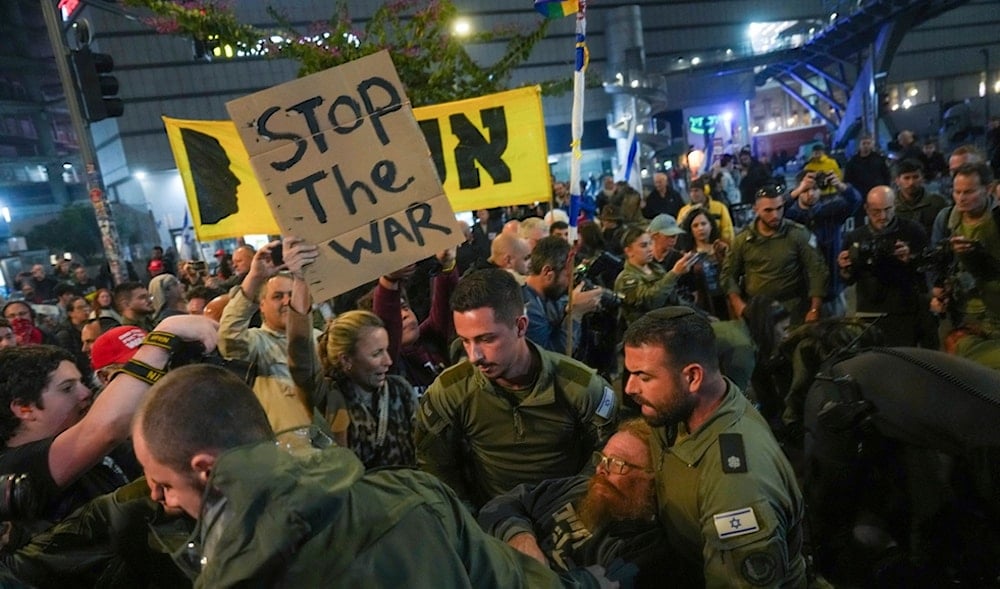Anti-government protests flood Tel Aviv, settlers demand captive deal
Israeli settlers are calling for early elections and an immediate end to the war on Gaza to safely return the captives.
-

Police scuffle with demonstrators who block a road during a protest demanding a cease-fire deal and the immediate release of captives held in the Gaza Strips, in Tel Aviv, "Israel", Saturday, Jan. 11, 2025 (AP)
A massive anti-government protest took place in Tel Aviv on Saturday evening, with thousands of settlers demanding an immediate prisoner exchange agreement for the release of captives from the Gaza Strip.
The demonstration was held near a government complex that includes the security ministry headquarters. Police and emergency services were present, blocking traffic and erecting barriers to prevent riots and road blockages, as had occurred during previous protests.
Initially organized by a movement calling for early elections in "Israel", the protest expanded to include support for the families of the captives. Protesters displayed photos of the captives while urging the Israeli occupation government to end the war to facilitate their safe return.
Read more: Israeli captive saved after suicide attempt: Abu Hamza
Families of captives file lawsuit before Supreme Court
Israeli Public Broadcasting Corporation reported that 112 Israeli settlers, including individuals who were previously taken captive and relatives of those currently held captive, have filed a lawsuit with the Supreme Court.
They are accusing the government of failing to safeguard their fundamental rights, neglecting the issue of captives in Gaza, and violating fundamental laws.
The Broadcasting Authority stated that among the plaintiffs is Rana Guma, the mother of settlers Or and Yigal Yaakov, who were taken captive from Nir Oz. Also mentioned in the lawsuit is their father, Yair, who was killed during the capture, and whose body remains held in Gaza.
In a radio interview, Goma voiced her frustration, stating, "For 15 months, the state has neglected its responsibility toward us, which is a clear violation of fundamental laws," also criticizing the priorities in "Israel", noting that the issue of the kidnapped should be at the forefront of media and political attention.
"In any normal country, this issue would be the first priority."

 2 Min Read
2 Min Read








